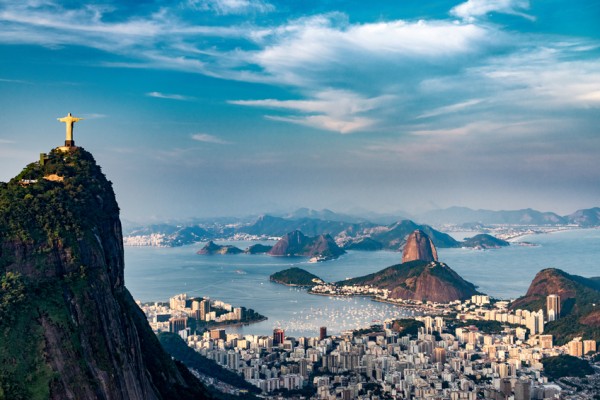
I reckon that Rio 2016 has been ‘the best Olympics ever’! Former IOC boss Juan Antonio Samaranch used this line at the end of every Olympiad (except Atlanta 1996). He was forever building up expectations about the Games. For me, however, Rio stands out as a triumph of lowered expectations.
This does not apply to Brazilians who were exuberant about being awarded the Olympics in 2009, but who now face economic and political crisis.
Infrastructure development for Rio has exposed widespread corruption. Many Brazilians question whether the money for the Games would have been better spent on schools and hospitals. Protesters temporarily extinguished the Olympic flame. Brazilian President Dilma Rousseff is on the verge of being impeached for financial mismanagement and interim President Michel Temer was booed at the opening ceremony.
In contrast, my lowly expectations of the 31st Olympiad had almost nowhere to fall. They were cut down by (Russian) drug doping and IOC corruption. I was less put off by the reports of crime, pollution and chaos, viewing the bad media as part of the pre-Olympics build-up; however, the fact that the World Cup was held there 2014 diminished Rio and Brazil as an exotic destination and the Olympics as an unmatched global sporting spectacle.
There’s also been a ‘Chiller effect’, whereby our nation’s high profile Chief of Mission, Kitty Chiller, has stressed that humility and effort take precedence over outright performance when it comes to Team Australia. The message to athletes and the public was to chill out and turn it down a notch.
I never believed that the Olympics would showcase ‘the best of humanity’, as UN Secretary General Ban Ki-Moon proclaimed. But as the Rio Games draws to a close, I’m feeling pretty good about them and the human condition in general.
The Games were a triumph for Australian and other athletes because there’s less of the psychological pressure that so often contributes to injury, under-performance and dummy spits. There’s been no equivalent of Jana drama Pittmann, the swimmers have been wonderfully gracious in defeat, the Kookaburras performed poorly, but “them’s the breaks”. Anna Meares won bronze, fantastic. Inspirational Kim Brennan rowed for gold, but if she had stopped and lay down exhausted like Sally Robbins, I sense we would be more understanding than we were in 2004.
Michael Phelps and Usain Bolt won, which is great. However, they’re arguably on an Olympic victory lap having already established their places in history; so no problem if they didn’t medal.
Taking some of the hype out of the Olympics has also been a victory for me as a fan precisely because the Olympics is often over-hyped. Lowering my expectations has helped me to consume the Games in a salubrious and moderate manner rather than binge and obsess over them. I’ve been able to watch much of the live action over (extended) morning tea or lunch breaks. I haven’t woken up bleary eyed and exhausted. Nor has my family and work life suffered. I’ve still got plenty of energy and interest left for the Paralympics. And I’ve even been able to play a bit of sport.
This measured and healthy approach to elite sports is worth keeping in mind with the footy finals almost here and Tokyo 2020 on the horizon.
Have you been overwhelmed or underwhelmed by Rio 2016? What have been your highlights and lowlights – or has it all just been OK? When it comes to sport and life, is avoiding disappointment as (if not more) valuable as pursuing glorious victory?
Kim Huynh teaches international relations at the ANU. Insights to this article were provided by philosophy student and punk rocker Duncan Stuart.












